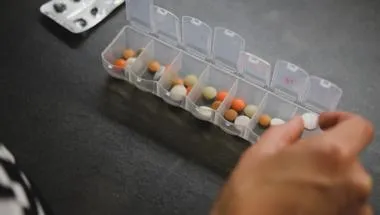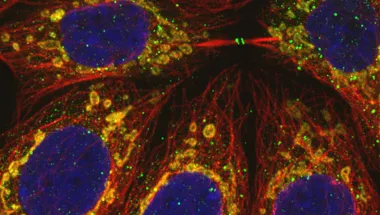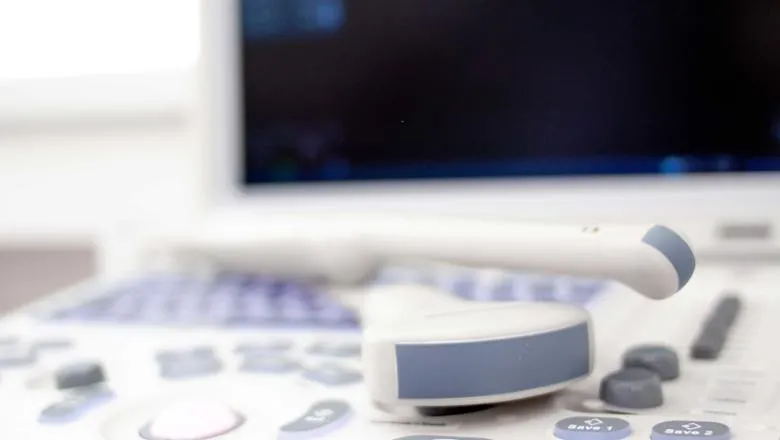
Professor Maya Thanou
Research interests
- Pharmacy
Biography
Professor Thanou is based in the Institute of Pharmaceutical Science at King’s College London and specialises in Pharmaceutical Nanotechnology. She finished her PhD in LACDR (Leiden/Amsterdam Centre for Drug Research) in the area of therapeutic peptides for cancer. In 2000 she received the AAPS award for excellence in Graduate Research.
After a short period in Kytogenics Pharmaceuticals, she took her first academic appointment in the School of Pharmacy, Cardiff University as a Lecturer in Polymer Therapeutics and Drug Delivery. In 2004 she was awarded the prestigious Dorothy Hodgkin Royal Society Research Fellowship and she continued research at Imperial College London, within the Department of Chemistry in the area of cancer gene therapy.
She moved to King’s in 2009. In her current role she is focusing in postgraduate teaching and research in Pharmaceutical Nanotechnology. She is currently focusing on the chemical design and development of theranostic nanoparticles, de novo design of materials for microwave sensing and hyperthermia, as well as novel nanomaterials for bioimaging (funded by EPSRC, BBSRC MRC, King's Commercialisation Institute, Schlumberger Foundation, Little Princess Trust, FUSfoundation InnovateUK).
Her research can be summarised on engineering image guided drug activation methods, using nanoparticles and medical devices. She collaborates with a number of companies (biotech, medical devices). She is the industry trustee of the British Society for Nanomedicine. She is the main or co-inventor of 10 patents and editor of a RSC book on Theranostics: Image Guided Drug Delivery.
Research

Medicines Development
The Medicines Development Research Group develops novel materials, formulations, drug delivery devices, manufacturing, analytical, and digital technologies.

Lipids and Membranes Research Interest Group
A Lipids and Membranes Research Interest Group
News
King's and UCL jointly appointed Focused Ultrasound Centre of Excellence
King's and University College London (UCL) have been jointly appointed as a Focused Ultrasound Centre of Excellence in recognition of their leadership in...

King's researchers make splash at CRH Innovation and Entrepreneurship Awards 2025
A wide cohort of researchers from King’s have been shortlisted for the Cancer Research Horizons Innovation and Entrepreneurship Awards 2025, shining a...

Events

Inaugural Lectures: Professors Tomoki Arichi & Maya Thanou
Inspiring talks from two of our new professors about their work, their specialisations, and their journeys to where they are today.
Please note: this event has passed.

International Women in Engineering Day panel & networking event
The School of Biomedical Engineering & Imaging Sciences Gender Equality Working Group is hosting an event to celebrate the work our women engineers at all...
Please note: this event has passed.
Features
Spinning out: Apeikon Therapeutics
We caught up with Professor Maya Thanou and Dr Maral Amrahli to learn a bit more about Apeikon Therapeutics and their spinout journey at King's.

Research

Medicines Development
The Medicines Development Research Group develops novel materials, formulations, drug delivery devices, manufacturing, analytical, and digital technologies.

Lipids and Membranes Research Interest Group
A Lipids and Membranes Research Interest Group
News
King's and UCL jointly appointed Focused Ultrasound Centre of Excellence
King's and University College London (UCL) have been jointly appointed as a Focused Ultrasound Centre of Excellence in recognition of their leadership in...

King's researchers make splash at CRH Innovation and Entrepreneurship Awards 2025
A wide cohort of researchers from King’s have been shortlisted for the Cancer Research Horizons Innovation and Entrepreneurship Awards 2025, shining a...

Events

Inaugural Lectures: Professors Tomoki Arichi & Maya Thanou
Inspiring talks from two of our new professors about their work, their specialisations, and their journeys to where they are today.
Please note: this event has passed.

International Women in Engineering Day panel & networking event
The School of Biomedical Engineering & Imaging Sciences Gender Equality Working Group is hosting an event to celebrate the work our women engineers at all...
Please note: this event has passed.
Features
Spinning out: Apeikon Therapeutics
We caught up with Professor Maya Thanou and Dr Maral Amrahli to learn a bit more about Apeikon Therapeutics and their spinout journey at King's.

